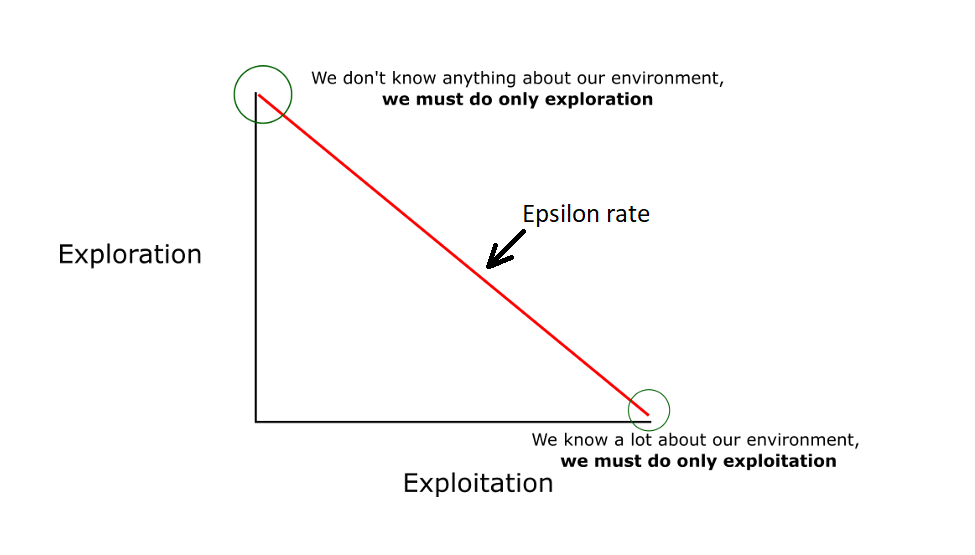During AI Agent training, there are two classes of actions an agent can take:
- Exploration: allows the agent to increase the knowledge about the environment
- Exploitation: allows the agent to maximize immediate reward
By exploring, the agent gets a better estimation of the value of action and by exploiting, the agent might get the reward.
Author’s note: Why not only explore, then? I think the answer is that we need to exploit to get further into the challenge. Thinking of a beach, if we only explored, we would only stay in the shores, as we never used our acquired knowledge to progress the challenge and be able to explore new stuff. But in that way, wouldn’t exploitation also be exploratory as well? I think the answer is no, because, as we’re using our estimates to take the decision, no knowledge of how we could improve the past decision is acquired. Exploration identifies doors, exploitations opens a door.
But it cannot do both simulteanously. (exploitation-exploration dillemanewnote)
Thus, to progress, both are needed and a balance between them needs to be choosed.
Epsilon-greedy is a simple approach to the dillema. It chooses randomly between the two options. But the probability of each one changes over time.
Epsilon (ε) describes this probability.
In the beggining of the training, there’s 100% chance of picking exploration. At the end, there’s 100% chance of picking exploitation.
In-between there’s a linear progression.

In the training of a DQN Agent, the exploration is a random action.